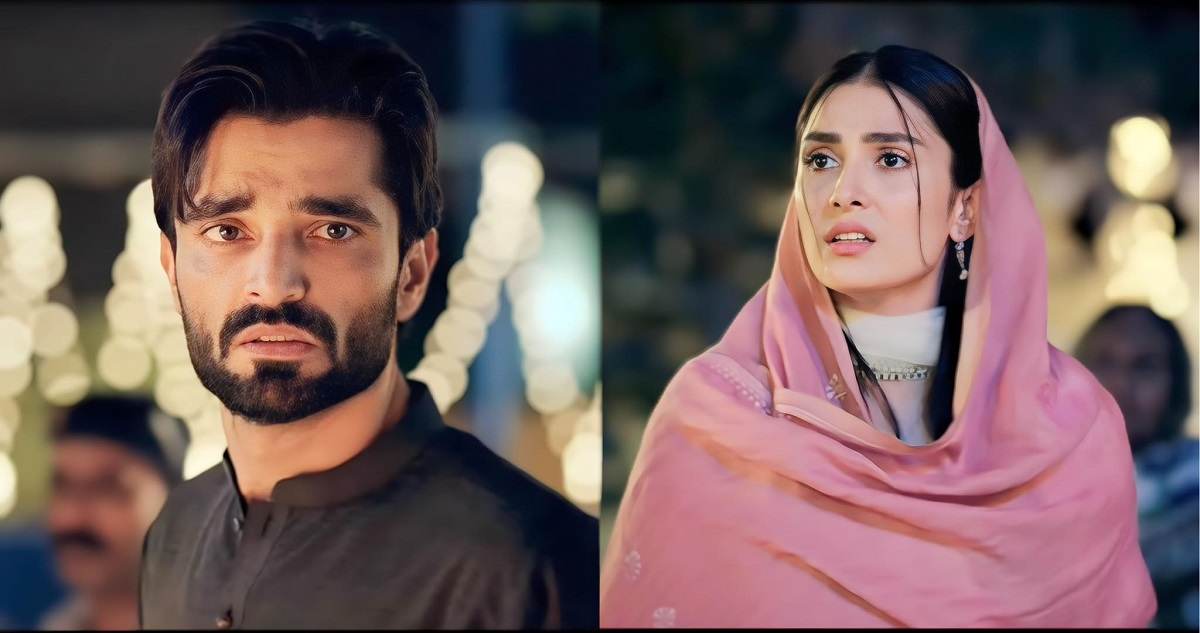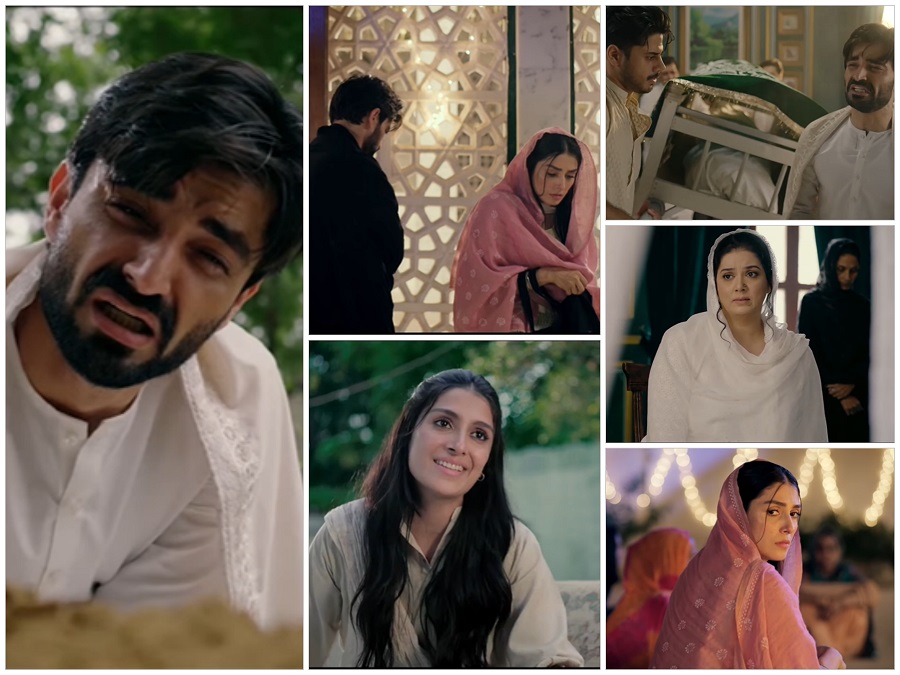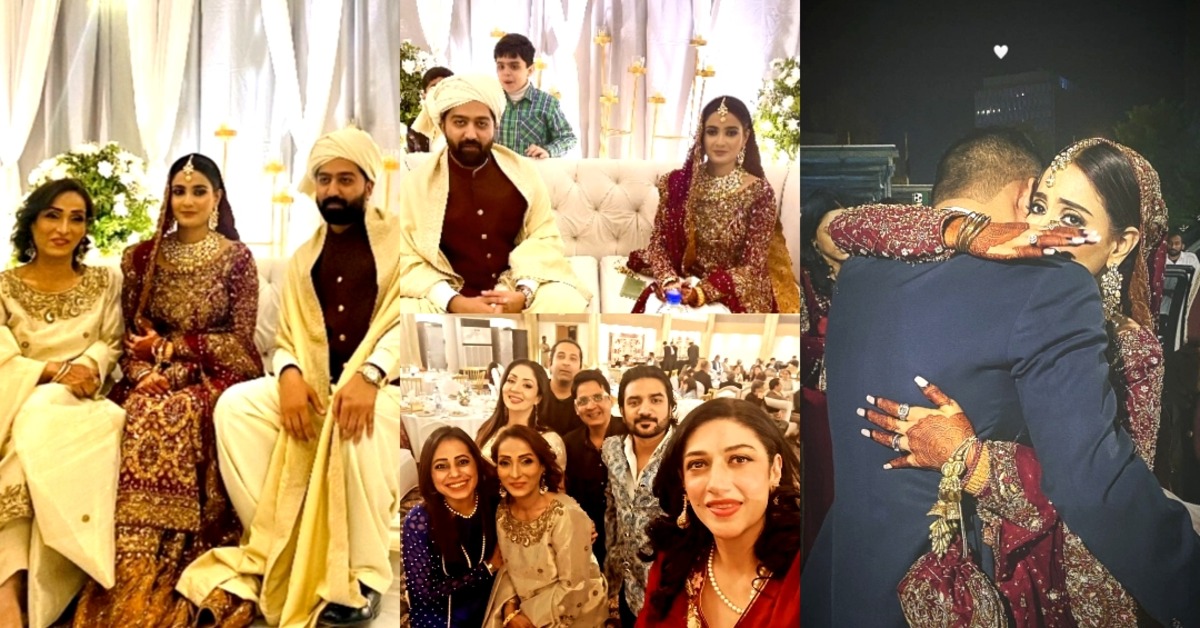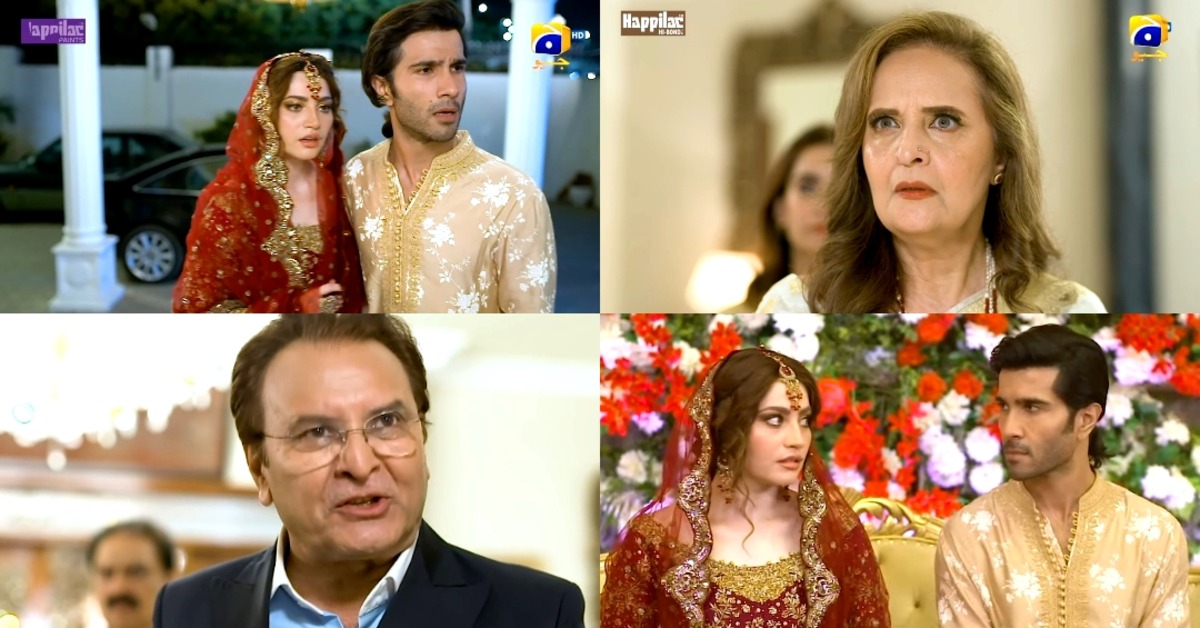This third episode of Jaan-e-Jahan focused on the immediate aftermath of Murad Shah’s sudden demise, with a particular emphasis on Shehram and Kishwar. As the opening two episodes unfolded, a lingering question emerged regarding Kishwar’s character trajectory. However, after witnessing the events in this episode, any uncertainty dissipated, leaving no doubt that Kishwar is destined to evolve into an outright negative character in the upcoming weeks. The remainder of the episode followed a somewhat predictable path, placing a significant emphasis on Kishwar’s negative actions. The timeline in this episode was slightly confusing as well.
While I anticipated Jaan-e-Jahan to explore a different narrative trajectory, it appears that we might have to endure a considerable amount of conventional negativity before the storyline takes a new and divergent turn. Hamza Ali Abbasi’s standout performance was the highlight of this episode coupled with a superbly directed last scene. The preview for the next episode also suggests an imminent triumph for Kishwar’s scheme, involving the use of sleeping pills on Shehram and orchestrating a marriage to someone who will be easily swayed by her influence.
After a long time, I felt that there was a detailed funeral scene in a drama that, for the most part, struck the perfect balance between dramatic intensity and emotional resonance. Despite the potential to overshadow the emotional depth of the moment, this meticulously crafted scene skillfully retained its poignancy, crafting a moment that befitted the departure of Murad Shah’s short but impressionable character. However, Savera Nadeem’s impeccably styled hair and flawless makeup in these opening scenes were excessive and therefore conspicuously diverting. It is common knowledge that Savera Nadeem is not someone who relies heavily on makeup. Thus, it can be reasonably inferred that this choice was made by the director, possibly influenced by the production house’s preference for a visually oriented presentation, irrespective of the situations portrayed.
This particular episode left no room for doubt, Kishwar undeniably planned her husband’s demise. Her character emerges not only as manipulative and clever but also as conniving and malevolent. She is also more confident than ever given Shehram state of mind after his father’s death. By making that statement about Shehram being the last one to give Murad Shah medicine, she caused him more guilt and confusion. She also understands that she no longer needs to be as tactful as before. However, given the circumstances, she initiated the conversation about the division of assets a little too soon. All of Kishwar’s scenes exuded negativity highlighting her relentless ambition to take charge by bribing servants and deftly manipulating situations within the haveli.
The viewers found out more clearly today that Kishwar’s love for her husband was a mere facade, and she harbored resentment for him due to his enduring love for his deceased wife. Her actions throughout their marriage were driven solely by the desire to acquire his wealth. However, upon discovering that Murad Shah was inclined towards Shehram and considering a will, she decided to end his life. Kishwar exhibits no remorse for her actions; instead, she feels liberated. This further reinforced that she is a calculating and unapologetically ruthless individual.
Hamza Ali Abbasi’s emotive prowess shone through in this episode, prompting me to wholeheartedly support his character. His on-screen depiction of Shehram’s helplessness was executed with impeccable finesse, a fitting portrayal that seamlessly complemented his character and the established emotional dependency on his father in the preceding episodes. Shehram is convinced that there isn’t much he can do to make his father’s will a reality because he always believed that he was incomplete without his father.
Shehram’s character remains somewhat elusive since there is very little that has been revealed about him till now. So far, all we know is that he is an emotional and sensitive man who holds relationships dear. Does he have what it takes to run an entire business empire? Will he prove to be another gullible male lead or will he ultimately show the same wisdom as his father? The potential for Shehram to reveal different shades adds an intriguing layer to the unfolding story, leaving viewers eager to explore the depths of his character as the plot progresses. Hopefully, the writer will not disappoint us!
Mahnoor did not get a lot of screen time in this particular episode. A few of the scenes covering her track showed her frustration with her present situation and also her determination to do something for her family. I am glad Ayeza Khan is playing a role that appears to be more balanced and promising than the few recent roles she played. However, I must say that I did not particularly enjoy watching Mahnoor’s scenes in this episode but this track has potential.
The final scene of this episode was exceptionally well-crafted. The director skillfully heightened viewer anticipation within the confines of a compact scene, showcasing commendable expertise. Hamza Ali Abbasi and Ayeza Khan’s palpable on-screen chemistry heightened the intensity of this scene, leaving me eagerly anticipating the next time these two share the screen. The camerawork throughout this episode was notably impressive, playing a pivotal role in accentuating the emotional states of all the characters involved. Jaan-e-Jahan boasts an exceptional cast, featuring talented actors in both leading and supporting roles, a factor that undoubtedly contributes to the show’s overall appeal. Hopefully, a well-crafted script will complement their performances.
Did you watch this latest episode of Jaan-e-Jahan? Do share your thoughts about it.




